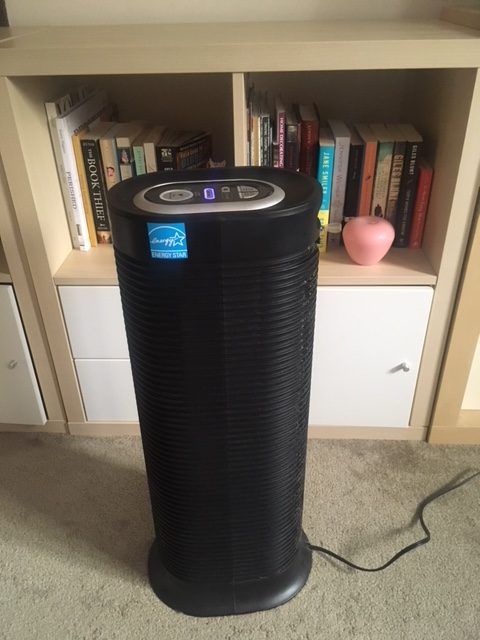Pros and cons of using essential oils for asthma
Using essential oils for asthma can offer some benefits, such as relaxation and reduced stress, which might help manage asthma symptoms. However, it’s important to note that essential oils can also trigger allergic reactions or worsen asthma in some people. Always consult with a healthcare provider before trying new treatments for asthma.

What Are the Benefits of Using Essential Oils for Asthma?
Using essential oils for asthma can offer several benefits. These natural oils can help soothe the airways, making breathing easier for those who struggle with asthma. They are known for their anti-inflammatory properties, which can reduce swelling in the respiratory system.
Essential oils also have a calming effect on the body. This can be particularly helpful for asthma sufferers, as stress and anxiety can trigger or worsen asthma attacks. By promoting relaxation, essential oils may help prevent these triggers from affecting breathing.
Which Essential Oils Are Most Effective for Asthma Relief?
Several essential oils are recognized for their effectiveness in providing relief from asthma symptoms. Peppermint oil is one of them; it contains menthol, which helps open up the airways and makes breathing easier. Eucalyptus oil is another popular choice due to its eucalyptol content, known to break down mucus and improve lung function.
Lavender oil is also beneficial for asthma sufferers because of its anti-inflammatory and sedative properties. It not only helps reduce inflammation in the airways but also aids in reducing stress and anxiety that might trigger an asthma attack. Tea tree oil, with its antibacterial qualities, can help fight infections that could potentially exacerbate asthma symptoms.
Find natural lung support with essential oils. Discover which ones improve breathing and learn safe usage tips.
How Do Essential Oils Work to Alleviate Asthma Symptoms?
Essential oils alleviate asthma symptoms through various mechanisms. Their anti-inflammatory properties play a crucial role by reducing swelling and irritation in the respiratory passages, thus easing breathing difficulties. Additionally, some essential oils have expectorant qualities that help clear mucus from the lungs and improve airflow.
Beyond physical relief, essential oils impact psychological well-being by promoting relaxation and reducing stress levels. This psychological support is vital since emotional stress can often trigger or amplify asthma symptoms. The soothing aroma of certain essential oils activates sensory pathways in the brain that contribute to feelings of calmness and relaxation.
Can Essential Oils Be Used Alongside Traditional Asthma Treatments?
Yes, essential oils can be used alongside traditional asthma treatments under proper guidance. They should not replace prescribed medications but rather serve as complementary therapies to enhance overall well-being and symptom management. It’s important to consult with a healthcare provider before integrating essential oils into an asthma care plan to ensure safety and compatibility with existing treatments.
Incorporating essential oils into an asthma management strategy offers a holistic approach to dealing with this condition. By combining the therapeutic effects of these natural substances with conventional medical treatments, individuals may experience improved control over their symptoms and an enhanced quality of life.
| Pros | Cons |
|---|---|
| May provide relief from respiratory symptoms such as congestion and coughing. | Potential to trigger asthma attacks in sensitive individuals due to strong scents or chemical components. |
| Can promote relaxation and reduce stress, which may indirectly help manage asthma symptoms. | Lack of scientific evidence supporting their effectiveness specifically for asthma treatment. |
| Natural alternative to pharmaceuticals, appealing to those seeking holistic approaches. | Risk of allergic reactions or skin irritation when applied topically without proper dilution. |
| Various methods of use (diffusion, inhalation, topical application) offer flexibility in how they can be incorporated into daily routines. | Overuse or improper use can lead to adverse effects, including headaches or nausea. |
| Some oils have anti-inflammatory properties that might benefit overall respiratory health. | Interactions with conventional asthma medications are not well-studied, posing potential risks when combined. |
What Are the Risks or Side Effects of Using Essential Oils for Asthma?
Using essential oils for asthma might seem like a natural and safe approach, but it’s not without risks. Some people might experience allergic reactions to certain oils. This can make asthma symptoms worse instead of better.
It’s also important to remember that essential oils are potent. They can irritate the airways in some individuals, leading to coughing, wheezing, or shortness of breath. These side effects could be dangerous for someone with asthma.
How Should Essential Oils Be Safely Used for Asthma?
To safely use essential oils for asthma, it’s crucial to start with a patch test. Apply a small amount of diluted oil to your skin and wait 24 hours. If there’s no reaction, it’s likely safe for you to use.
When using essential oils, always dilute them with a carrier oil like coconut or almond oil. Never apply them directly to your skin undiluted. Also, consider using an aromatherapy diffuser instead of direct inhalation if you have sensitive airways.
Are There Any Specific Types of Asthma That Should Not Use Essential Oils?
Certain types of asthma may not respond well to treatment with essential oils. For example, individuals with severe asthma or those who have asthma triggered by allergies should be cautious. The compounds in some essential oils could trigger an allergic reaction or an asthma attack.
Additionally, children with asthma and pregnant women should avoid certain essential oils unless advised otherwise by a healthcare professional. Their bodies might react differently or more intensely to these substances.
Final Thoughts
In conclusion, while essential oils offer potential benefits for managing asthma symptoms, they’re not suitable for everyone. It’s important to weigh the risks and consult with a healthcare provider before incorporating them into your treatment plan.
Safety should always come first when considering alternative treatments like essential oils for asthma. By being informed and cautious, individuals can make the best decisions for their health and well-being.






